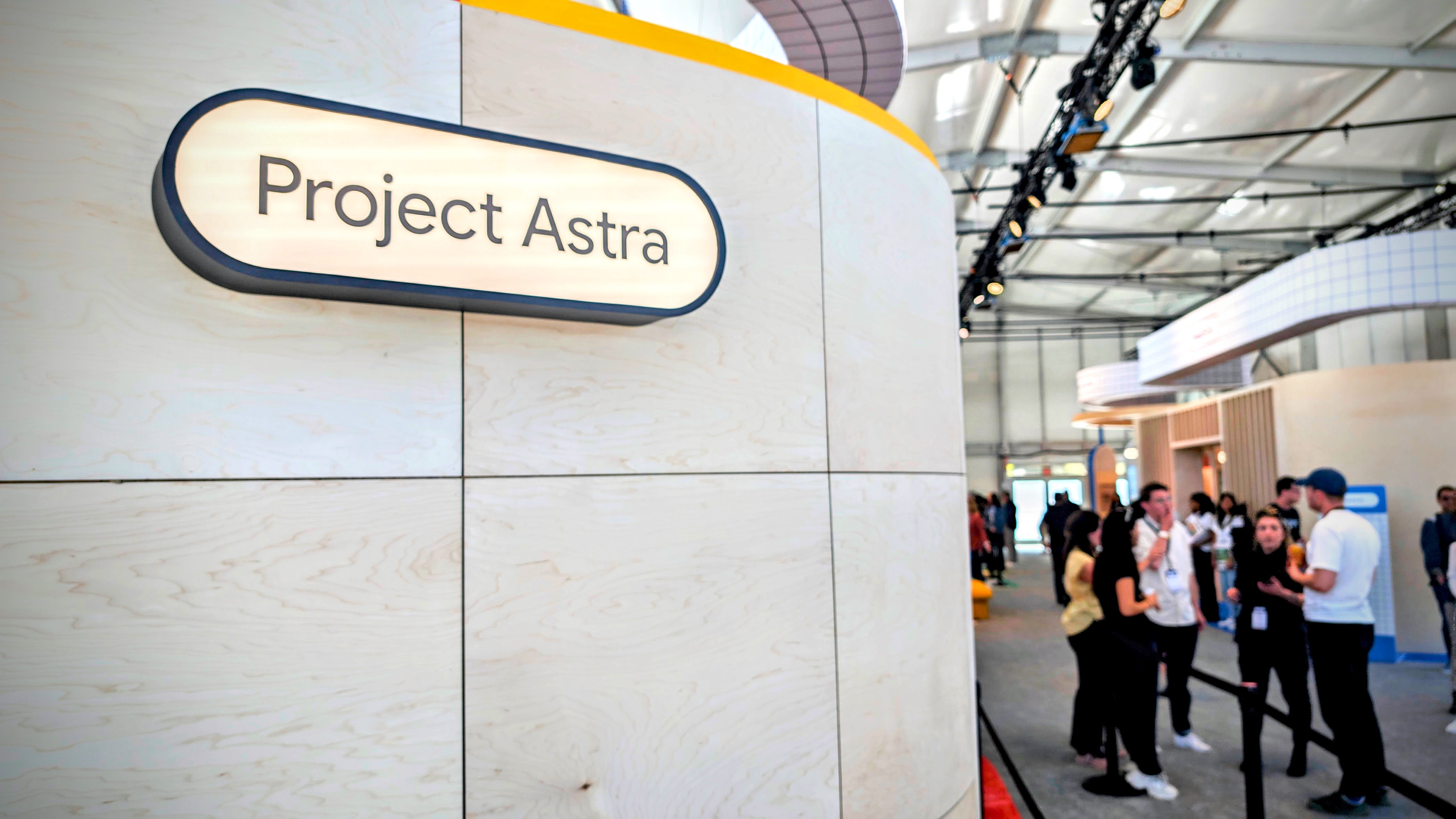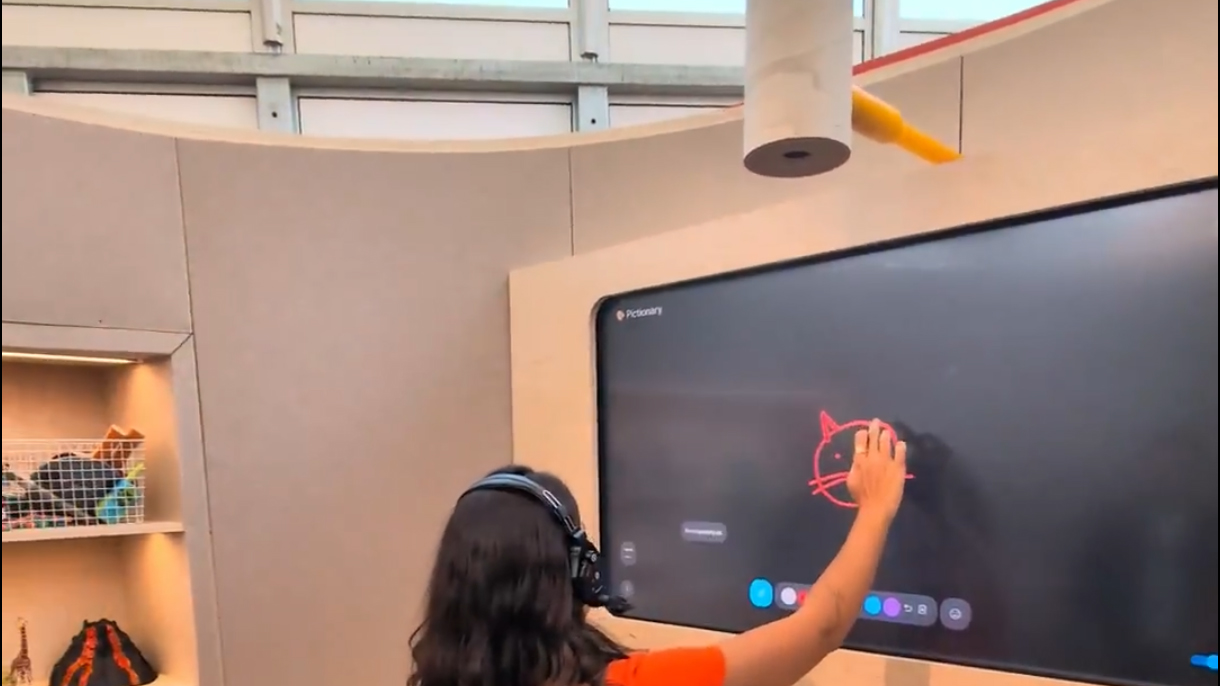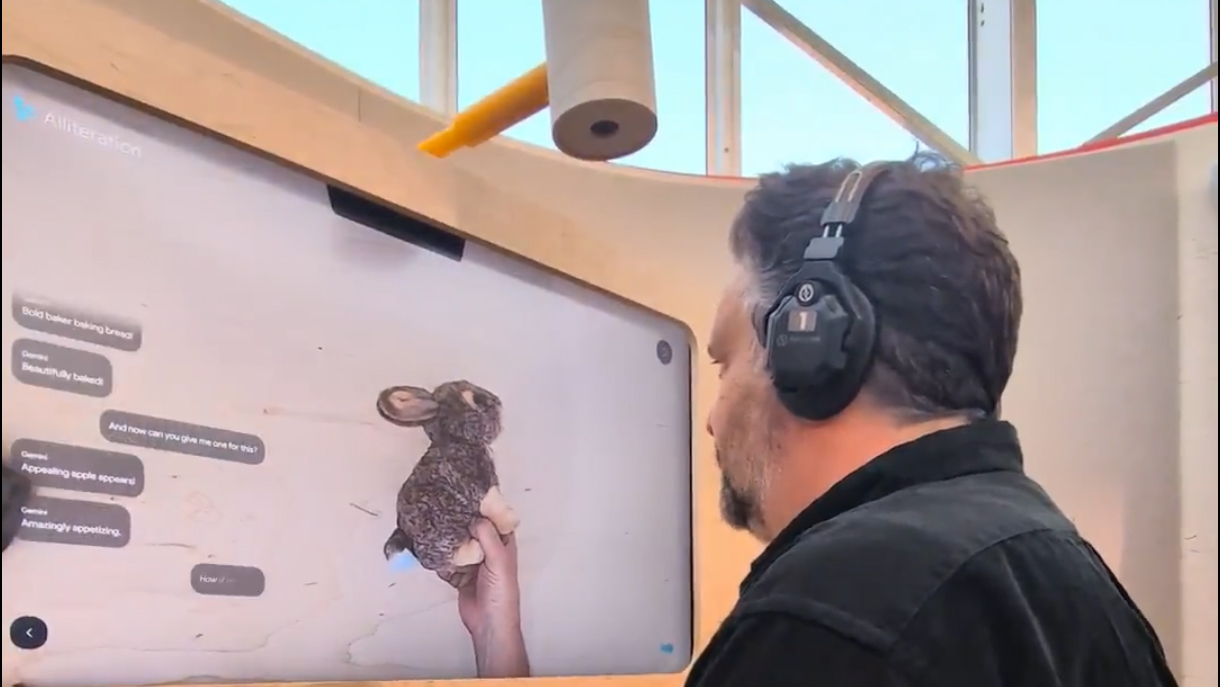When you purchase through links on our site, we may earn an affiliate commission.Heres how it works.
But you cant tell me, dont be adversarial with an AI.
As a writer and editor a creator AI IS the adversary … maybe.

We dont know yet, because this is all so very new.
Project Astra is a multimodal AI project from Google.
It uses a camera for vision and listens to your voice.

you could draw a picture, and it will make a run at interpret what you draw.
What it gives you in return is speech.
Simply show and tell Project Astra whatever you like, and it talks back to you.

In the demo at Google I/O, Project Astra consisted of a large camera pointing down at a desk.
Google offered a number of toys to use with our prompts.
Project Astra played Pictionary.
I drew, and it guessed what I was drawing.
It even talked me through its reasoning, and I offered hints.
Astra told me a story, using the toys and my input as a guide.
I showed Astra a crab and asked for a story in the style of Hemingway.
Project Astra created an alliterative sentence based on what I presented.
A beautifully baked and browned baguette, for instance.
It didnt always start with the same letter as the object, but its responses were good alliteration.
I showed Project Astra a donut and asked for an alliterative sentence.
Then I asked for sci-fi-themed alliteration, and it complied.
I asked for silly words, and it understood what I wanted.
Even its post-response follow-ups were alliteration.
It was quite clever, seemingly.
Where Project Astra is (and isn’t) going
Project Astra has a lot to say.
Google only gave us four minutes with Project Astra, which is why I kept going back.
There were limited options for what Astra could do.
This is why I returned to see Project Astra three times.
It got more fun, the more open and expressive I could be with the software.
By my third pass, I wasnt waiting for the introduction; I just started talking to Astra immediately.
There was no time to lose, and Project Astra has a lot to say.
Still, Project Astras concept would be perfect onsmart glasses.
When (if?)
Google finally launches AR glasses, Im sure Project Astras fingerprints will be on them.
Is Project Astra’s ‘memory’ going to be a problem?
With that in mind, Project Astra has some questionable talents.
In the Google I/O keynote, Google reps took Project Astra on a walk around the office.
Then, a Googler asked Astra where he left his glasses.
Astra said it saw his glasses next to a redapple.
Project Astra has memory.
The AI got that right.
This immediately raised privacy concerns.
What happens when the FBI comes around?
Oh, your shady friend was here?
We have a warrant to see everything he touched and moved when he was in your house.
It should all be available on camera, thanks to Project Astra.
Except thats not how Project Astra works.
It can remember, but only things it has seen during that single session.
After that, Project Astra forgets everything and moves to the next subject.
The problem is what happens during those minutes.
Project Astra cant compute its information locally.
Astras memory is uploaded to Google.
In the prototype stage, that doesnt mean much.
It looks at context, and its results seem much more advanced, even at this early stage.
Theres a long road from prototype to production.
Well be keeping a close eye on Project Astra and all ofGoogles AI projects.